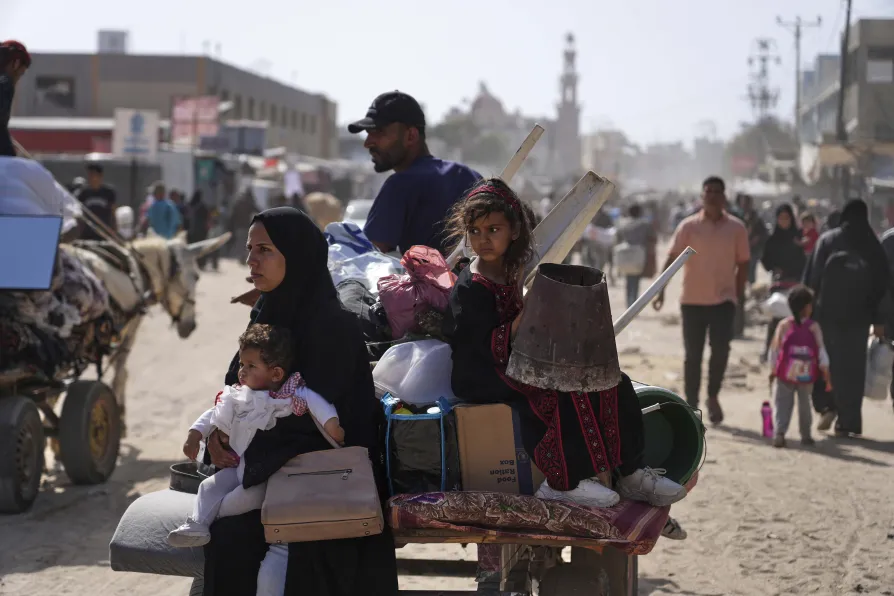
 Displaced Palestinians flee from Khan Younis, Gaza, amid the ongoing Israeli military offensive in the area, May 19, 2025
Displaced Palestinians flee from Khan Younis, Gaza, amid the ongoing Israeli military offensive in the area, May 19, 2025
ISRAELI Prime Minister Benjamin Netanyahu said today that his decision to resume limited aid to the Gaza Strip after a two-and-a-half month blockade came after pressure from allies who said they couldn’t support Israel’s renewed offensive if there are “images of hunger” coming out of the Palestinian territory.
But by this afternoon no aid appears to have reached the desperate Palestinians in Gaza.
The announcement came hours after the Israelis launched a new wave of air and ground operations across the territory and the army ordered the evacuation of Gaza’s second-largest city, Khan Younis.
On Sunday, Israel said that it would allow a “basic” amount of aid into Gaza to prevent a “hunger crisis” from developing. Experts have already warned of famine if the blockade imposed on the territory’s roughly two million Palestinians is not lifted.
Israel has stepped up its offensive in Gaza in what it says is a bid to pressure Hamas to release the remaining hostages abducted in the October 7 2023 attack.
Hamas has said that it will only release them in exchange for a lasting ceasefire and an Israeli withdrawal.
Mr Netanyahu said today that Israel planned on “taking control of all of Gaza” and establishing a new system to distribute aid that circumvents Hamas.
He has also said that Israel will encourage what he refers to as the voluntary emigration of much of Gaza’s population to other countries.
The Trump administration has voiced full support for Israel’s actions and blames Hamas for the toll on Palestinians.
But Mr Netanyahu said that Israel’s “greatest friends in the world” had told him: “We cannot accept images of hunger, mass hunger.
“We cannot stand that. We will not be able to support you.”
He added that the situation was approaching a “red line” and a “dangerous point.”
The aid that would be let in would be “minimal,” Mr Netanyahu said and would act as a bridge toward the launch of a new aid system in Gaza, in which a US-backed organisation will distribute assistance.
United Nations agencies and aid groups have refused to take part in the plan, saying it won’t reach enough people and would weaponise aid in contravention of humanitarian principles.
Also today, an Israeli strike on a school-turned-shelter in the built-up Nuseirat refugee camp killed five people, including a woman and a girl, and wounded 18, mostly children, according to Al-Awda hospital, which received the casualties.
The Israeli military had no immediate comment on either incident.














